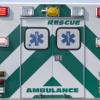Sign in to follow this
Followers
0

Community Paramedicine article
Started by
DWC295,
-
Recently Browsing 0 members
No registered users viewing this page.

Started by
DWC295,
No registered users viewing this page.